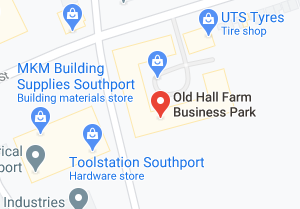How it all began...............
NOSTALGIC WIGAN
Metal Recycling
Elias Calderbank was born on Primrose Day, 1875 in Great George Street, Wigan. He began his scrap metal business in 1904, originally working on the railways whilst his wife, Elizabeth, ran a bake house they owned in Platt Lane, Scholes. When customers couldn’t afford to pay for their bread they would accept scrap metal in payment. This began their trade in metal but on leaving the railways Elias had to return until he had raised enough capital to pursue his love of the scrap metal business.
The original depot was a small yard behind the current Wigan Little Theatre. Here they hired out pony and carts to local rag and bone men, buying their collections at the end of the day. The business grew steadily, and as soon as their children were able they all joined the business. There was Joseph, John, Thomas and Elizabeth. The company was incorporated in April 1924 and began trading as E. Calderbank & Sons Ltd.
The Calderbank family were proud of their motto ‘Spot Cash’ and each employee was supplied with a brass badge with the motto engraved. The phrase is still used today even though many customers prefer digital banking and electronic payments. With the arrival of their first lorry in the twenties, Calderbank’s last working horse, ‘Teddy’, was retired to a local farm in Chorley Road, Standish, only to escape and be found waiting the following morning outside the Wigan yard gates ready for work!

‘Teddy’ ready for a days work & World War One tank dismantled from Mesnes Park.
Dismantling and demolition was undertaken at a time when Risk Assessment wasn’t a Health and Safety prerequisite yet no accidents were ever recorded. The redundant trams and sheds at Martland Mill were demolished in 1926 and in November 1929 the legendary Wigan Pier was bought from Winstanley Collieries for £34 and dismantled for scrap.
By the mid 1930’s Calderbanks had a fleet of motorised vehicles and over twenty men engaged in collecting scrap. At the outset of the Second World War half of the vehicles were commandeered for the war effort but the company still prospered as scrap metal was urgently sought. Railings were removed from public buildings and even Wigan Parks ornamental gates were sent for scrap. Luckily for Wigan, Calderbanks were reluctant to cut them up, and returned them to the Council when the war ended.

Removal of the original Wigan Pier & A World War One gun.
The company began managing many works contracts and larger premises were sought. In 1938, a nearby mill came up for sale which was across the river Douglas from the famous Central Park rugby ground. This was known as Water Heyes Mill, Orchard Street. Later, a further site was purchased that included a rail link at Britannia Bridge, Ince. Rail passengers travelling from Manchester to Wigan always knew they were approaching Wallgate Station as they passed the heaps of metal piled high.
The next generation of family now joined the firm, there was John’s son Joe, and Tom’s two sons Frank and Elias who continued to build up the business until they all retired in 1987. Thirteen years earlier, Frank’s second son, Tim, had formed his own metal recycling company in nearby Standish. His elder brother Andrew joined a few years later, followed by younger brother Matthew, who had been working at E. Calderbanks, then sister Jackie. Matthew later left and trained to become an airline captain. Tim’s wife Janet joined the company in 2007.

Old gas lamps arriving at Orchard Street yard & Large electric motors being loaded.
Today, the business is highly mechanised with mobile shears and balers. Prices are at record levels and the volume of material destined for China has increased significantly. Tim Calderbank Metal Recycling is now based on an award winning environmental site at Bradley Hall, Standish, which has also seen many changes over the years. During the Second World War it was a large munitions factory, then in 1948, H.J. Heinz opened it as a food manufacturing plant. Tim Calderbank has personally served over 100,000 customers, however, he is still waiting to see if Lloyd and Liam the fifth generation of Calderbanks will continue the family tradition.

Woodhouse Lane tram depot & An aerial view of the company’s award-winning Bradley Hall site.


